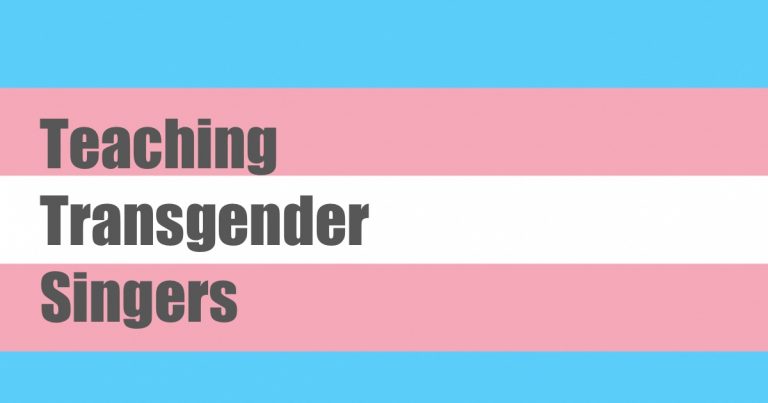Transgender singers are currently on the forefront of voice pedagogy discussions. Emerald Lessley’s recent dissertation provides significant experiential evidence as well as addressing important medical and social concerns in working with this unique population.
As trans individuals are increasingly able to live openly, voice teachers will begin to see more transgender singers in their studios. However, vocal pedagogy is in its infancy with regard to addressing the needs of transgender singers. Much of the information currently available to voice teachers is either anecdotal or is comprised of personal experiences from transgender singers who also teach voice. While these perspectives are valuable, it will be helpful to be able to combine the available resources with fact-based, scientifically sound information about the transition process, hormones, surgeries, and voice pedagogy.
In her webinar Emerald will provide scientifically based information so that voice teachers have access to resources that will allow them to be the best teachers possible for their transgender students.
In order to best serve the students, teachers must be aware of obstacles facing transgender singers, including gender dysphoria and discrimination, legal and social obstacles, and the physical changes associated with hormone replacement therapy. For example, when teaching transgender male singers, it is important to consider the physical changes that occur with the initiation of testosterone, including the lowering of the vocal pitch. Other necessary considerations include navigating the voice during the transition process as well as establishing appropriate registration and resonance strategies after the vocal transition is complete. In contrast, when teaching transgender women singers, it is important to realize that the voice will not experience any permanent changes due to hormone replacement therapy.
In order to achieve a more feminine sound in speech, transgender women will likely utilize forward resonance, which can result in vocal fatigue and tension in the vocal mechanism if not guided to do so with vocal health in mind. Necessary considerations include encouraging release in the vocal mechanism and establishing registration and resonance strategies, especially in the higher register. Choice of repertoire in both transgender men and transgender women should prioritize the singer’s comfort level and current vocal ability.
The current literature on teaching transgender singers is extremely limited, which can be frustrating to well-meaning voice teachers who are looking for answers about the experiences of their trans students.
 Dr. Emerald Lessley received her DMA from the University of Washington in Seattle, USA, where she worked extensively with transgender singers while researching for her dissertation, Teaching Transgender Singers. Dr. Lessley was a speaker at the 2017 Northwest Voice Conference, and she will be a guest on NATS Chat in December 2017.
Dr. Emerald Lessley received her DMA from the University of Washington in Seattle, USA, where she worked extensively with transgender singers while researching for her dissertation, Teaching Transgender Singers. Dr. Lessley was a speaker at the 2017 Northwest Voice Conference, and she will be a guest on NATS Chat in December 2017.
In addition to her research, Dr. Lessley is an active performer of opera as well as new music in the U.S., Canada, and Europe.





